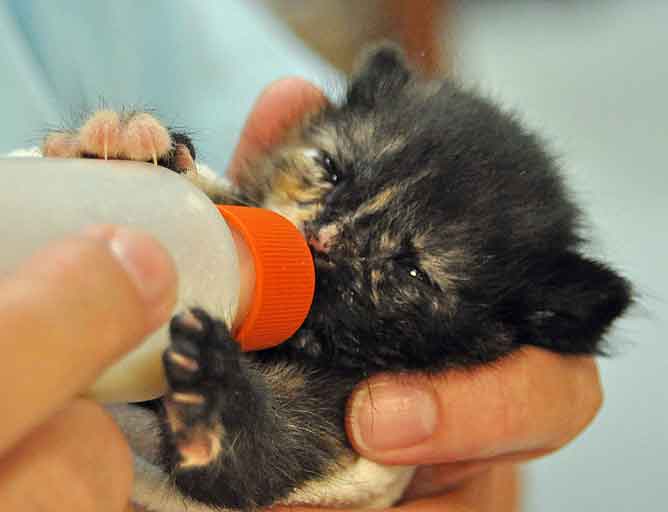By Jodi Summers, Animal Resource Center Director/ Cat Behavior Counselor
I know everyone is anxiously awaiting the arrival of kittens. Everyone hears us talking about kitten season, but what does that truly mean? Well, kitten season starts in the spring, peaking in late spring- early summer and ends in the fall. Kittens can be born year-round, however the vast majority are born during “kitten season”. This is when shelters all across the country are flooded with unwanted kittens. The most vulnerable of this population are the neonatal kittens, kittens from birth to four weeks of age. These tiny ones can not survive on their own as they require round the clock care. We rely on a network of foster homes to help us care for these little ones until they are ready to find their forever homes.
Here are some facts:
• Female cats can become pregnant at five months.
• An average cat has 1-8 kittens per litter and 2-3 litters per year.
• During her reproductive life a female cat can have more than 100 kittens.
• One female cat and her offspring can produce between 100 and 400 cats in 7 years!
The bottom line: There are just not enough homes for the number of cats born each year. To make things worse, during kitten season the number of adult cats that get adopted drops significantly because most people choose to adopt a cute little kitten instead.
The good news? You can help. There are a few ways that you can be a part of RHHS’s lifesaving efforts to keep these little kittens alive and find their forever homes.
What can you do to help?
1. Spay/neuter your pets- there is help available if you are unable to afford the procedure. Mesa County Animal Services and Grand Valley Pets Alive offer subsidy coupons to help offset the cost. Animal Birth Control is a local veterinary clinic that specializes in low cost spays and neuters.
2. Donate – We know that money can be tight so donate your time. All rescue organizations rely on volunteers, we can’t do it without them.
3. Support Trap, Neuter, Release (TNR) in your neighborhood/community – TNR has been proven to work controlling community/feral cats. If you can’t donate money to these programs, donate your time. Having someone that can transport trapped cats to the veterinary clinic can be extremely helpful. Call Grand Valley Cat Coalition (970-261-3760) and Grand Valley Pets Alive (970-462-7554) and ask what you can do to help them accomplish their goals. The best way to make sure we can care for babies is to prevent more unwanted kittens from being born in the first place.
4. If you find a litter of kittens please make sure the mother is truly gone and not coming back before you intervene. If the kittens are clean and quiet their mother is most likely out hunting and will be returning shortly. If the kittens are dirty and crying then something may have happened to the mother and it might be time to intervene. Mother cats move their litters frequently for safety. If you find a lone kitten, it is possible that the mother is in the process of moving the litter, keep watch from a safe distance to make sure the mother is not returning before you intervene.
5. BE A FOSTER!!! The more foster homes available the more kittens we can save. It is easier than you might think and will be a rewarding experience for the whole family.
Questions? Want to volunteer to foster RHHS kittens? Contact Jodi at 970-434-7337 ext 3 or jodi@rhrhumanesociety.org


Our cat, now five years old, was one of these rescued kittens. He is bright, funny, loving, and very dear to us. We are thankful every day for Roice-Hurst, the people who saved him when his mother was hit by a car.
Our Little Dude (2 1/2 has become so big we re-engraved his tag to The Dude) is the love of our lives, sweetness to the nth degree. We support and appreciate all that Roice-Hurst is committed to and hope they are able to continue their mission for generations to come. Thank you!